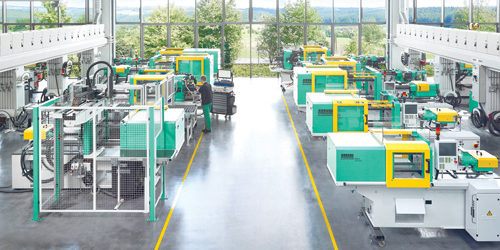
If you’re anything like me, the date of 23rd June 2016 is already ingrained in your memory. Whether you recall it with joy or despair will, I suppose, depend on how you voted in the referendum.
Only time will tell what effect the decision to leave the EU will have on the economy in general and our businesses in particular. For the time being, most of us who run small and medium sized enterprises are simply happy that the initial prognosis of fiscal calamity has proved largely false.
Here at EMC, in fact, things could hardly be better. By a strange quirk of fortune’s erratic wheel, we are enjoying one of our busiest spells for a long time in mergers and acquisitions activity.
As I write, in the 14 weeks since the June referendum we have completed four significant deals and have three more just about to come to the boil. Our pipeline is also as full as it has been for a considerable period, so we’re certainly not bleating about Brexit… not yet, anyway!
M&A activity normally reacts badly to political and economic uncertainty – and we’ve certainly been going through that! But as Experian MarketIQ’s half-yearly report shows, the deal market nationally has proved pleasingly robust.
This is what Experian’s Research Manager, Jane Turner, had to say: “While we have undoubtedly seen a more cautious stance take hold among the UK’s larger corporates, privately held businesses have been looking to grow by acquisition in increasing numbers in the first half of 2016, with several sectors actually returning substantial spikes in activity.
“With so much uncertainty surrounding the ramifications of the UK’s decision to leave the EU, it is difficult to predict to any great degree how M&A activity will be affected in the second half of the year, although it does seem probable that there will be some reduction in the deal flow in the short term as companies take stock.
“However, the imperatives for UK businesses to make deals are still in place and the new economic reality will likely create its own opportunities for canny investors. With that in mind, dealmakers on both the buy and sell side will feel that it is more important than ever to carry out rigorous research before putting their best foot forward in the pursuit of strategic acquisitions.”
Sure enough, each of the three full months since the referendum have seen a fall-off in deal volumes. But that was to be expected. However, the appetite for a deal in the right circumstances is still there.
In particular, many larger companies holding sizeable cash reserves – and there are plenty of them – are busily scouting around for potential acquisition targets as a way of growing by investment. Well, they’d be silly not to given that the banks are almost actively discouraging them from holding onto their cash.
At the same time, lots of smaller business owners are coming to the conclusion that now might be a good time to capitalise on the years of hard work they have put into building their companies and get out while the going is still relatively good.
We work mainly with small and mid market businesses. In the small market sector (under £10m) in the South East, deal volumes increased by 29.3% in the first half of this year compared to 2015. Values also rose by 37%.
That was a rather rosier picture than in the whole of the South East M&A market where, although the number of completed deals in the first half was up 10.5% on 2015, values took a hefty tumble from £60.4bn to £19.6bn. Most of that was attributable to there not being a deal anything like the size of the £47bn acquisition of BG Group that took place in the first half of last year.
In the short term, I see no reason why the M&A market in our corner of the South East – we operate primarily in Sussex, Surrey and Kent – should not continue to be encouragingly active, particularly at the smaller end. While values aren’t achieving the multiples they once did, good, well-run businesses will still be much sought after and attract a decent premium.
We’ve had a couple recently that proved the point. Pasante Healthcare in Lancing was started by entrepreneurs Lawrence, Dominic and Paul Boon in 2000 and grew to become the largest independent condom company in the UK and a global brand exporting to over 60 countries around the world.
We worked with the company for several years and, just a few weeks ago, it was snapped up by Malaysian company Karex Bhd in a £6m deal. Karex, the world’s fastest-expanding condom and sexual health manufacturer, plans to use Pasante to spearhead its expansion into Europe.
Similarly, Ford-based Genie Care, the company behind a unique device that helps clinicians and carers with the regular turning of bed-bound patients to prevent ulcers, was bought by the Frontier Medical Group for an undisclosed sum to complement its Repose range of pressure area care products and further cement its commanding position in the sector.
In both these cases the owners were well prepared for an exit. But that isn’t always the case. We’ve seen it time and again when an initial approach by a prospective purchaser has taken the owners completely by surprise.
In an ideal world, you will control the timetable for your business exit. That would allow you a year or two – with, perhaps, a little help from firms like mine – to get everything in the best shape possible before testing the market. But it doesn’t always work like that. The call can come at any time so you need to be prepared.
Whatever you do, don’t bite straight away. Although you may be flattered by the attentions of a potential suitor, take time and, more importantly, take advice from those who have been there, seen it and proudly wear the T-shirt. You won’t regret it.
Nik Askaroff is CEO of EMC Corporate Finance.
Tel: 01273 945984.
Email: nik.askaroff@emcltd.co.uk.
Web: www.emcltd.co.uk






